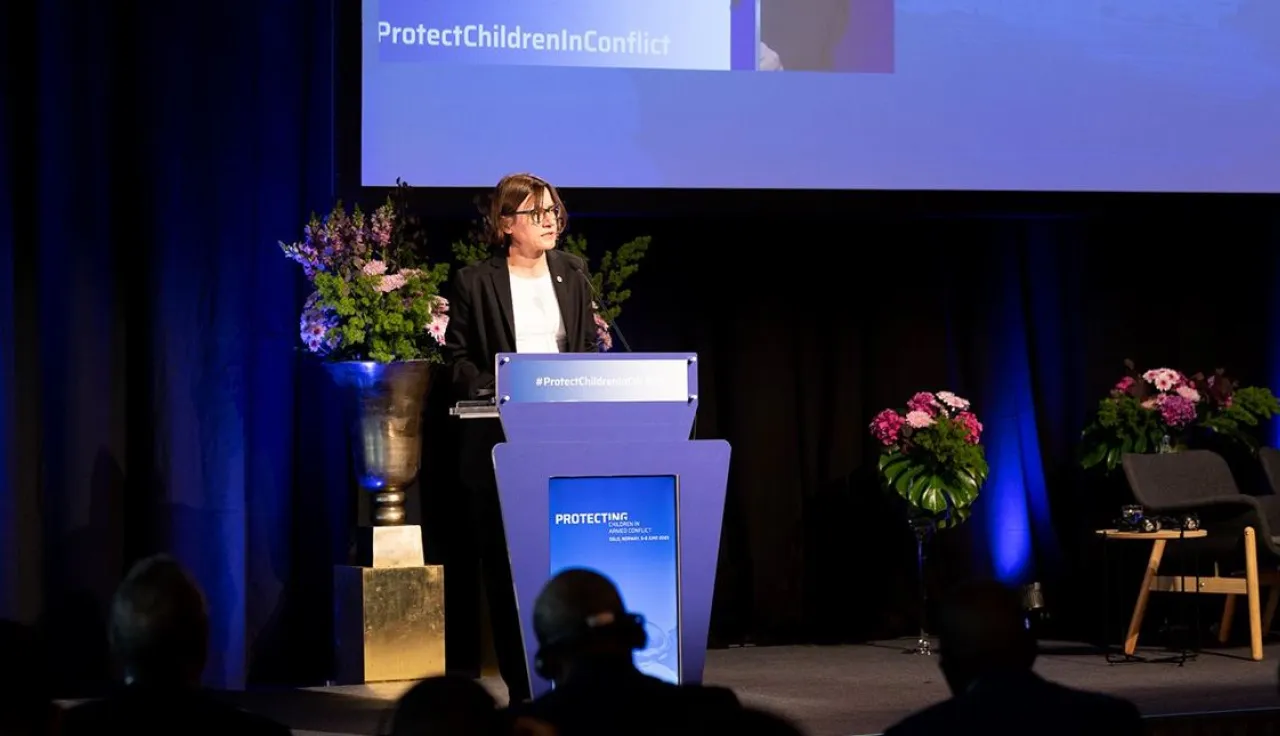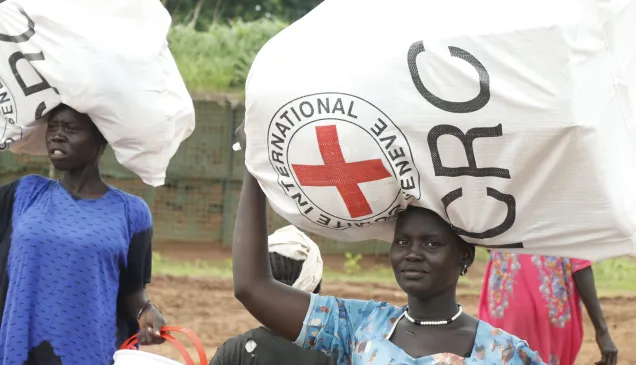Mirjana Spoljaric: "We can elevate the protection of children in armed conflict as a political priority"

Even if the Convention on the Rights of the Child is the most ratified human rights convention in the world, ICRC's president Mirjana Spoljaric stresses that much more needs to be done to protect children in armed conflicts.
Speech given by Mirjana Spoljaric, President of the International Committee of the Red Cross, at the Conference on Protecting Children in Armed Conflicts in Oslo (06.06.2023)
Dear Minister, dear colleagues,
Armed conflicts continue to ruin the lives of millions of children.
When I go on mission, I see children. In Mali, Syria, Ukraine, I saw how the effects of violence and destruction pervade all aspect of their lives. A child's face cannot hide fear, the fear of more suffering.
Everywhere the International Committee of the Red Cross works – from the frontlines to camps, prison facilities and cities, the accounts are horrifying:
Children:
- are still recruited;
- wounded and killed;
- displaced and stranded in camps;
- detained, arbitrarily and in desperate facilities;
- separated from their families
- exposed to a multitude of abuses, including sexual violence
They are out of school.
International humanitarian law provides crucial safeguards to ensure that essential services that children depend on can continue during armed conflict.
It also entitles children affected by armed conflicts to special respect and protection, including:
- Age-appropriate treatment in detention
- Access to education, food and healthcare
- Reunification of unaccompanied children with their families
- Protection from recruitment
Yet, laws and standards are being applied selectively to some children, and not to others.
Children are targeted, tortured, starved, detained, just because they are associated with the enemy.
For several years now in North-East Syria, children live in camps or are separated from their families and moved to prisons, including as part of counter-terrorism measures.
Children are punished for the perceived transgressions of their parents or communities. Punished for the bad luck of being born in a camp.
Al-Hol belongs to the most complex child protection crises in recent years.
International humanitarian law protects all victims of conflict. This means all children – recruited, captured, detained.
A child is a child. No discriminatory practice is justified or acceptable.
To alleviate the suffering of children in armed conflicts, the International Committee of the Red Cross engages with weapons bearers on child protection issues, helps families find their missing children, visits detained children, and provides humanitarian assistance and medical care.
Yet, at the heart of protecting children in armed conflicts lies respect for international humanitarian law.
The Geneva Conventions are universally ratified and the Convention on the Rights of the Child is the most ratified human rights convention in the world. Yet there is some distance to go to universalize some additional protective treaties and policy frameworks.
And most importantly, to respect and ensure respect for international humanitarian law.
This conference is the moment for states to step forward on their own laws and policies, and to influence others to do so. The ICRC asks for concrete commitments:
First, accede to the treaties that prohibit the recruitment of children in armed conflict. It is time for these to be universal.
Despite knowing the horror of child recruitment, not all States have acceded to the law that proscribes it:
- the Optional Protocol on Children in Armed Conflict
- the Additional Protocols I and II to the Geneva Conventions
- and the Statute of the International Criminal Court.
Second, meaningfully protect all children who have been recruited by armed forces and armed groups, and significantly step-up efforts for their release and reintegration.
Children who have been recruited should be seen as victims first and foremost. Detention must be a last resort measure – but it is too often the rule.
We call on States to endorse and to take steps to implement the Paris Principles. They provide guidance for the release and reintegration of recruited children into society, to ensure their best interest.
Third, take action – and this means within your militaries – to prevent the enormous consequences of urban warfare on children.
The special protection of children should be specifically addressed in urban warfare doctrine and planning and included in trainings.
Children are more likely to die of the effects of explosive weapons in populated areas and to suffer the consequences of the breakdown of health and education services.
In particular, more States should endorse, and take corresponding steps to implement, the Political Declaration on Strengthening the Protection of Civilians from the Humanitarian Consequences arising from the use of Explosive Weapons in Populated Areas.
Minister, dear colleagues,
Today, more than ever, we can elevate the protection of children in armed conflict as a political priority and ensure it receives the necessary funding.
For this reason, I am grateful to Norway for convening this important conference, and thank you for having given me the opportunity to speak to you today.



